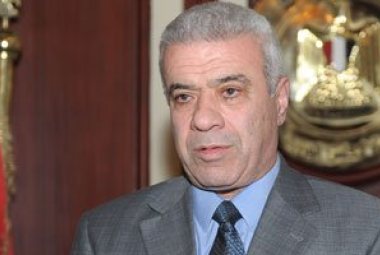Triple M Chairperson, Hatem El Roumy, said that they have subcontracts for seven solar power plants projects in Benban, Aswan, within the feed-in tariff projects, including a contract with TBEA to implement three plants.
In addition, the company has two subcontracts for TCK, one for Stirling and Wilson, and another for Fanar Energy. The total value of the seven contracts amounts to EGP 25m. The company still seeks to contract for more projects in the coming months.
He explained that Triple M will soon sign a memorandum of understanding with one of the Bulgarian companies to establish the first Arab-European alliance to operate and maintain solar power plants in cooperation with the Egyptian-Jordanian company for renewable energy.
Triple M has also contracted with China’s Shandong to serve as its dealership in the Middle East and Africa in terms of selling drilling rigs of solar energy used in the construction of solar power stations.
He revealed the completion of the final stages of dispensing electricity produced from the national network of a farm in AbuSuir, Ismailia, where the construction of a solar power plant with a capacity of 10 MW is underway, along with a hybrid system that outputs 6 kW including a wind turbine and solar cells.
He added that Triple M has submitted its bid to be approved within the Egypt PV national project of small solar cells, as the company aims to implement solar power plants for a number of factories and companies, each with a capacity of 50-100 kW.
The National Small Solar Cells Project (EGYPT PV) is funded with investments of up to $3.5m. It is a grant from the Global Environment Facility of the United Nations.
The project aims to prepare a guide for implementation and training of technicians and establish a technical support and consultancy centre, focusing on increasing the percentage of the locally manufactured component, preparing technical cadres, supporting the emerging markets of solar power technology in Egypt, AND creating new job opportunities.
He called on the government to seek the establishment of factories to produce components of the wind turbine locally to be a substitute for imports, which helps to strengthen the Egyptian economy, and provide the country with foreign currency.
He noted that the company implemented electricity and communication works in the JICA wind farm of 220 MW and FIEM project of 120 MW as well as in Al-Rajef wind farm in Jordan with a capacity of 86 MW.
Moreover, he said that Egyptian power saving company (EPSCO), which he also chairs, has exported LED torches to Arab countries, including 70% of components from the Egyptian market, which is expected to reach 100% to be fully made in Egypt.
EPSCO aims to export 20,000 LED torches and sell 10,000 in the Egyptian market during the first quarter of next year.
He pointed out that the main challenges facing the company in the Egyptian market are the presence of imported products that are approved by government agencies, despite their lower quality in comparison to the Egyptian products.
EPSCO is responsible for maintenance, and supplying spare parts for its products throughout their life expectancy, he added.
El Roumy further elaborated that the company is interested in research and development, innovation, and always seeks to find advanced technologies to add to the products, in order to provide better quality and advanced technology.
Additionally, he noted that the company is training youth on fibre optics and LED in Korea, China, and the United States.




